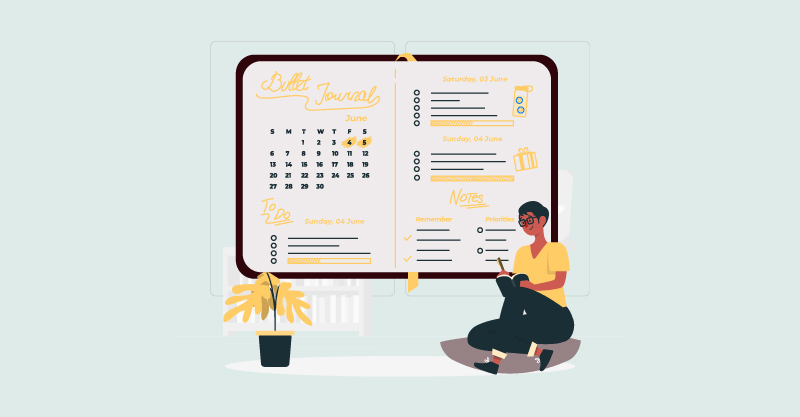Maybe you have thought about journaling or writing down your thoughts on a piece of paper but never really got around that idea. Starting journaling for self care is easy. People experience journaling benefits in due course. Sometimes, we experience instant relief after expressing our thoughts in a journal, but that feeling goes away fast if we don’t hold on to it and decide to make a habit out of it.
For many years journaling practice has proved to be extremely beneficial for our mental health, but like any other good habit to have in our life, it demands efforts and discipline.
I started journaling in school and had many physical journals, but I destroyed many of them when I got married and wanted a fresh start. Although I don’t recommend anyone to do that, it felt right to me at that point. I soon moved to digital journals, and now when I read them, I feel happy to see my self-growth and feel more vital to know the kind of challenges I have overcome.
Do you know the celebrities who write a letter to their younger self? Journaling helps us to have that conversation with our younger selves so easily.
Although the simplest way to start journaling is to “Just Start.”
Here is a step by step guide on how to start a journaling practice for your mental health.
1. Set your #intentions:
This is very important. You need to ask yourself why you want to journal, why you want to confront your emotions? Figure out what you are trying to achieve before you set any #journaling goals? Many journalers like to see their personal growth and reminisce that growth by going back to their entries. Some use it as a venting space and share their genuine reactions and thoughts for life situations. Journaling has proved to be a common #habit for people who are highly productive and disciplined in life. Your intention can be completely different from the examples here, but it will help you maintain the habit.
2. Decide Journaling Medium:
There are two main mediums you can choose to initiate your #journalingjourney. Either you are comfortable with notebooks, or you are a digital platform person. You need to identify that and accordingly take the next step.
As someone who has used both the mediums physical and digital, I have had challenges with both. In my physical journals, I always worried about the security of it. It’s challenging to find a hideout place in your own home, and people around you are ever curious.
I found solace in the digital platform and did not worry about security. But somehow, I found it too passive. We always have higher expectations from technology, so I wanted my platform to be intuitive and give me some data on my growth.
That’s why I created #MindAlcove App to track my progress over time and know what I need to take care of and what I should continue doing. But, you should pick the platform you feel comfortable with and make a habit out of it, or you can use both. You can write in a physical journal and track your mood on a digital platform. The idea is to find comfort.
3. Make time for yourself:
Take some particular time out for this activity, as it requires your full attention and #mindfulness. The best time to journal is early in the morning before you get busy with your daily routine. Many active journalers add journaling into their morning routine, and they have felt an increase in their productivity. Of course, you can choose to write as and when the situation occurs, and you need to confront your emotions, but it’s best to add it either in the #morningroutine or night routine to maintain the habit.
N here’s a bonus:
Share your #joy with your friends:
If you experience the benefits of journaling, then share it with your friends and encourage them to start this great habit. It will also reiterate the benefits to you in return, and you will continue this habit for a long time.
So whatever medium you choose to start with, make sure it resonates with you, as the medium should not become a challenge for you to start this beautiful journey.
Self care journaling is a great way to take care of your mental health. It’s a very easy habit to start and doesn’t require a lot of resources or investment, just needs a few minutes of your time. This small start of pouring yourself out and looking back at how much you have grown, will help in the longer run. You will have more awareness of your emotions, habits, mindsets. Seeing your own growth over time will be rewarding and will get you excited for what’s ahead.
Have a great time writing.
Discover #EmotionalFitness
If you are someone who is comfortable with to keep a digital journal, start your journey on Mind Alcove App.











